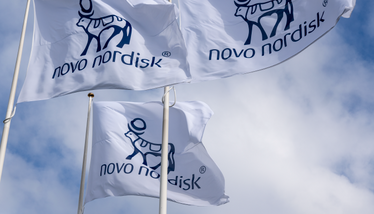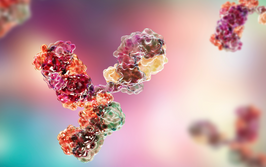This Week’s Industry News: Changes at the top of Novo Nordisk
Our latest news roundup reports on changes at Novo Nordisk, AbbVie’s ADC accelerated approval, Regeneron’s new acquisition, and more.
| 3 min read | News

Credit: Novo Nordisk
Novo Nordisk CEO steps down
Novo Nordisk CEO Lars Fruergaard Jørgensen intends to step down after eight years in the role, during which the company experienced significant growth in sales, profits, and share price. According to a statement, the decision follows recent market challenges and a decline in share price since mid-2024. Jørgensen will remain as CEO temporarily to ensure a smooth leadership transition. Lars Rebien Sørensen, chair of the Novo Nordisk Foundation and former CEO of Novo Nordisk, will join the company's Board as an observer, with plans for formal nomination in 2026.
Board chair Helge Lund said, “I would like to thank Lars Fruergaard Jørgensen for his outstanding contributions to Novo Nordisk’s success during his tenure as CEO. He is highly respected both inside and outside the company for his leadership, values and vision for the company and the pharmaceutical industry at large.”
Regeneron to acquire 23andMe
Regeneron Pharmaceuticals plans to acquire 23andMe's core assets for $256 million following 23andMe's Chapter 11 bankruptcy filing in March 2025. The acquisition encompasses the company's Personal Genome Service, Biobank, Total Health, and research services, excluding its Lemonaid Health unit. Regeneron has pledged to uphold 23andMe's existing privacy policies and applicable laws, ensuring the protection of customer genetic data. An independent consumer privacy ombudsman will assess the transaction's impact on privacy, with findings due by June 10. A court hearing to approve the deal is scheduled for June 17, and the transaction is expected to close in the third quarter of 2025.
Accelerating Abbvie’s ADC
The FDA has granted accelerated approval to AbbVie’s Emrelis (telisotuzumab vedotin-tllv) for treating adults with advanced non-squamous non-small cell lung cancer exhibiting high c-Met protein overexpression following prior systemic therapy. Emrelis is a c-Met-directed antibody-drug conjugate (ADC) that delivers a cytotoxic agent directly to cancer cells. Approval was based on the LUMINOSITY trial, where 35 percent of patients responded to treatment, with a median response duration of 7.2 months. The VENTANA MET (SP44) RxDx Assay was also approved as a companion diagnostic. CSO Roopal Thakkar said, "Leveraging advanced technology and data science, we are growing our ADC portfolio designed to deliver the right medicines to the right patients in need across a range of difficult-to-treat tumors."
Research
HIV vaccine progress
A study led by scientists at the International AIDS Vaccine Initiative (IAVI) and Scripps Research combines data from two separate phase I clinical trials, showing that a targeted vaccine strategy can successfully activate early immune responses relevant to HIV, and, in one trial, further advance them. The trials included nearly 80 participants from both North America and Africa, laying essential groundwork for a future HIV vaccine with global potential. The study was published in Science.
One of the trials tested a stepwise vaccination strategy, in which a priming dose and a distinct booster dose were given sequentially to guide the immune system through stages of antibody development. The trial demonstrated that administering this combination could further advance the immune response in humans. The second trial focused on the priming stage and showed that an initial vaccine dose could successfully activate the desired immune cells in African participants, supporting the use of this approach in regions most affected by HIV. In both trials, the vaccines were delivered using an mRNA-based vaccine platform, similar to the technology used in the COVID-19 vaccines, which enabled faster production and clinical testing, and provided strong immune responses.
CRISPR’s compact cousin
Researchers at the McGovern Institute and the Broad Institute of MIT and Harvard, led by Feng Zhang, have engineered a compact genome-editing tool named NovaIscB, derived from IscB enzymes – evolutionary ancestors of CRISPR-Cas9. IscBs are naturally smaller than Cas9, making them advantageous for gene therapy delivery. The team screened nearly 400 bacterial IscBs, identifying ten capable of editing DNA in human cells. To enhance specificity and efficiency, they modified the enzyme to accommodate longer RNA guides and incorporated a segment called REC, crucial for DNA interaction in human cells. The team believes that NovaIscB's compact size and precision could make it a promising candidate for therapeutic genome editing applications.



















